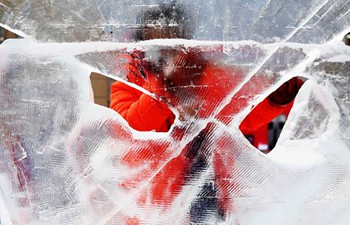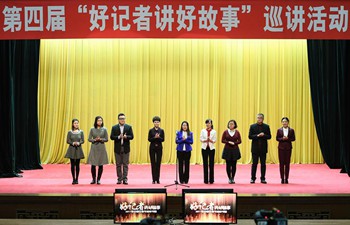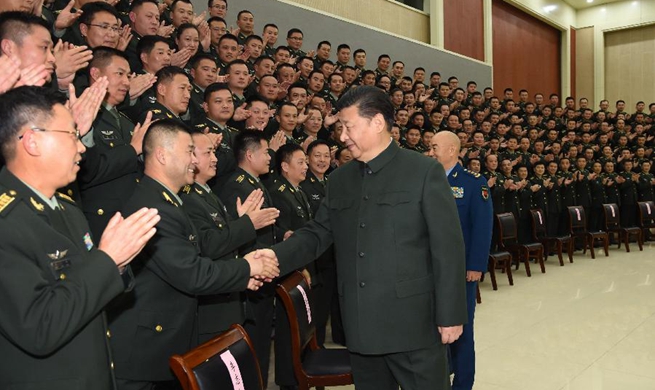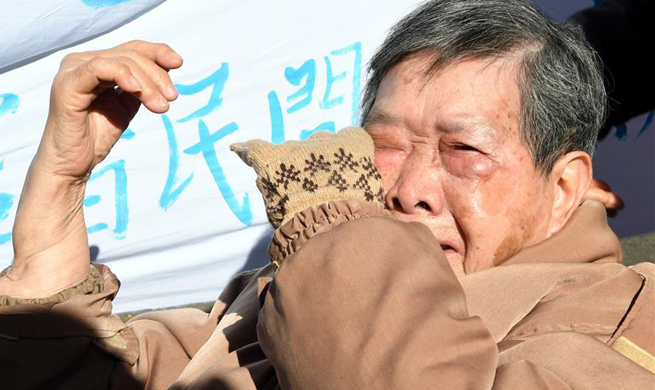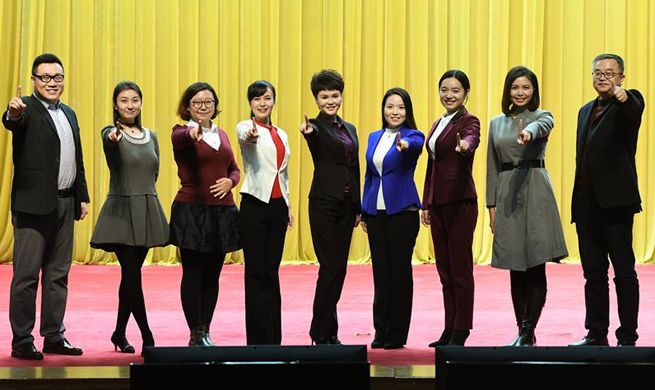The mechanism that guarantees performance of duty of judicial personnel in accordance with the law has been improved, clearly stipulating that judges and procurators are to be free from interference by administrative organs, social groups and individuals when handling cases as per the law. Provincial-level courts and procuratorates have direct jurisdiction over the staffing, finance and property of their subordinate courts and procuratorates, and circuit courts under the Supreme People's Court and trans-regional courts and procuratorates have been set up to handle trans-regional cases in a concentrated way. The enforcement mechanism of judicial power, which explicitly differentiates power and responsibility, features effective supervision and regulation, and guarantees protection, continues to be improved.
Pressing forward with reform of the criminal litigation system centering on trials. Basic evidence criteria at all stages of criminal litigation have to be made clear to ensure that factual evidence must withstand the test of the law, that innocent people are safeguarded from criminal punishment, and that the guilty ones are brought to justice. "The Opinions on Pushing Forward the Reform of the Criminal Litigation System Centering on Trials" and its implementing rules have been released to accelerate the reform of the criminal litigation system centering on trials, to strictly carry out the principle of assessing penalty by law, evidence-based adjudication and excluding illegally-obtained evidence, to guarantee legalization and justification of trial procedures, and to ensure that trial in court plays a decisive role in investigating facts, confirming evidence, protecting litigants' rights, and impartially adjudicating cases. A mechanism to separate complicated cases from simple ones has been applied to handle each in a distinct way. Since 2014, when the summary proceeding for criminal cases was adopted as trial in 18 cities including Beijing, pilot courts have concluded over 90 percent of cases within ten days of filing, with a rate of appeal of only 2 percent. Trial effectiveness and litigation efficiency have seen considerable improvement, and the rights of litigants have been effectively protected. In addition, the pilot reform of imposing lesser penalties on suspects who admit their guilt and accept punishment has been extended. To increase litigation efficiency, effectively reduce social conflict, and repair social relations as quickly as possible, lesser penalties will be imposed on criminal suspects and defendants who acknowledge their guilt, accept punishment, return ill-gotten gains, or make compensation as per the law.
Guaranteeing individual rights and interests in litigation. People's courts have changed the case filing review system into a case filing register system to put every case on file and review any litigation to completely protect the litigious rights of the parties concerned. Since the adoption of the case register system in May 2015 people's courts have registered and taken up on the spot 95 percent or more of the cases. By September 2017 over 39 million cases had been filed through registration. The Ministry of Public Security has released the "Opinions on Reforming and Improving the System of Accepting and Filing Cases", stipulating that public security organs must accept cases within their jurisdiction reported by people or handed over by superior organs and counterparts, and deal without any prevarication with accusation, seizure and delivery, and voluntary surrender. By June 2017 public security organs at provincial level had released opinions on carrying out reform on accepting and filing cases, and 18 provincial public security organs had set up case management departments to make case acceptance and filing more standardized, effective, convenient, and transparent.
Abiding by the rules concerning excluding illegally-obtained evidence. In order to regulate investigation and interrogation activities, we need to put in place strict rules concerning excluding illegally-obtained evidence stipulated by the Criminal Procedure Law, further clarify the scope and requirements of interrogation recording for cases subject to audio and video recording, and require that procuratorates and public security organs must have complete real-time audio and video recording when interrogating suspects concerning power abuse, those who might incur life imprisonment or the death penalty, and other suspects of major crimes. Provisions on Several Issues Concerning the Strict Exclusion of Illegally-obtained Evidence in Handling Criminal Cases has been released, further clarifying criteria and exclusion processes for illegally-obtained evidence at all stages of criminal procedure. Evidence collected by means of threat or illegal confinement should be subject to the rules of excluding illegally-obtained evidence. There are rules on exclusion of repeated illegally-obtained evidence, and the defense counsel now has more say in excluding illegally-obtained evidence. The Provisions clarify preliminary review functions of the pretrial conference on legitimacy of collected evidence, exclusion rules concerning illegally-obtained witness testimony, statements of victims and tangible evidence, and the principle of on-court verdict. Since 2013 procuratorates have withheld their approval in the case of 2,624 arrests, and declined to prosecute 870 accused through exclusion of illegally-obtained evidence.
Preventing and correcting wrongful convictions. The Ministry of Public Security issued the "Notice on Further Strengthening and Improving Law Enforcement to Prevent Miscarriages of Justice" and other documents to reinforce the mechanism and system preventing miscarriages of justice, improve the law enforcement system and case handling criteria, strengthen case scrutiny, and regulate the procedures of assessing, evaluating, rewarding and penalizing law enforcement personnel to prevent miscarriages of justice at source. The Ministry of Justice released the "Opinions on Maximizing the Functions of the Forensic Assessment System to Prevent Miscarriages of Justice" to strengthen all-round forensic assessment management and further regulate such activities. The Supreme People's Procuratorate released "Several Opinions on Effectively Performing Procuratorial Functions to Prevent and Correct Miscarriages of Justice", scrutinizing all activities concerning evidence, procedures and application of laws, improving the system of discovery, correction, and prevention of cases of misjudgment, and holding to account those responsible. The Supreme People's Court issued the "Opinions on Establishing and Improving the Working Mechanisms for the Prevention of Miscarriages of Justice in Criminal Cases", stipulating that the defendant should be acquitted in cases of lack of evidence, and no one should be punished without criminal evidence. People's courts at all levels conduct impartial trials in line with fact and law and make corrections when they find wrongful cases. From 2013 to 2017 they corrected 37 wrongful convictions involving 61 people, and acquitted 4,032 defendants as per the law. (more)




